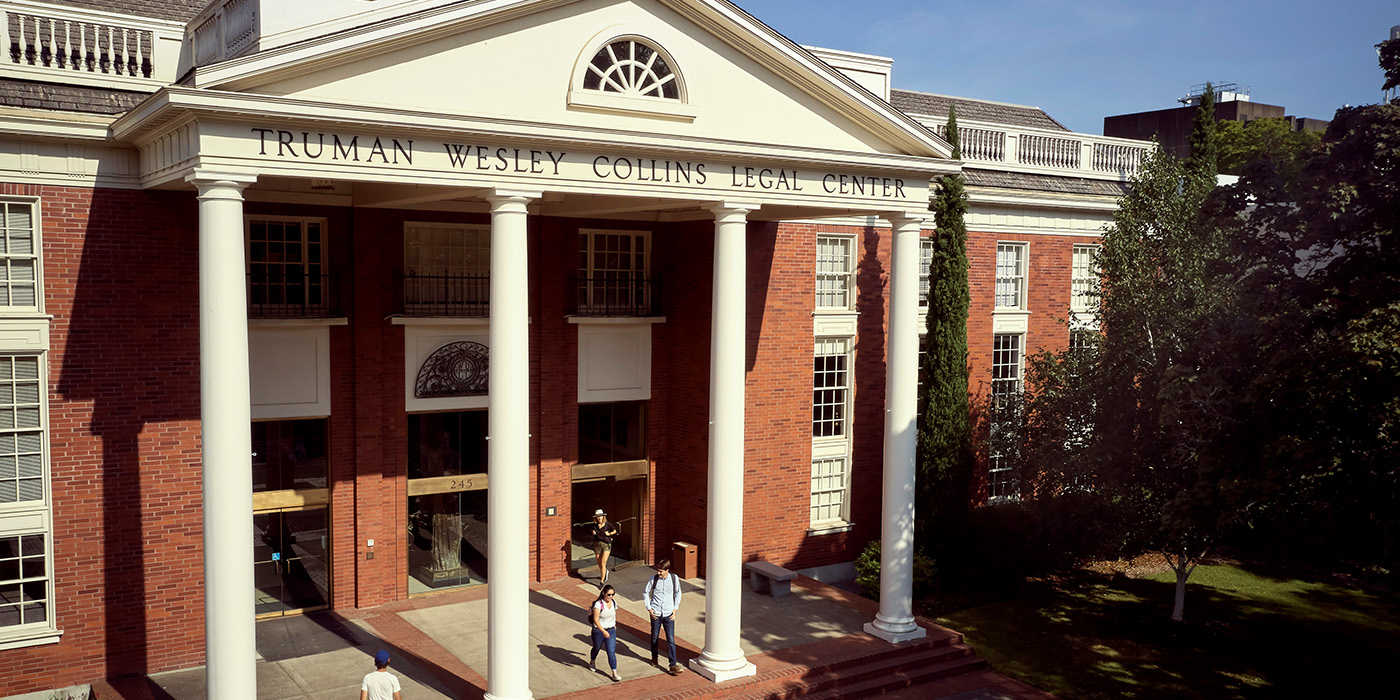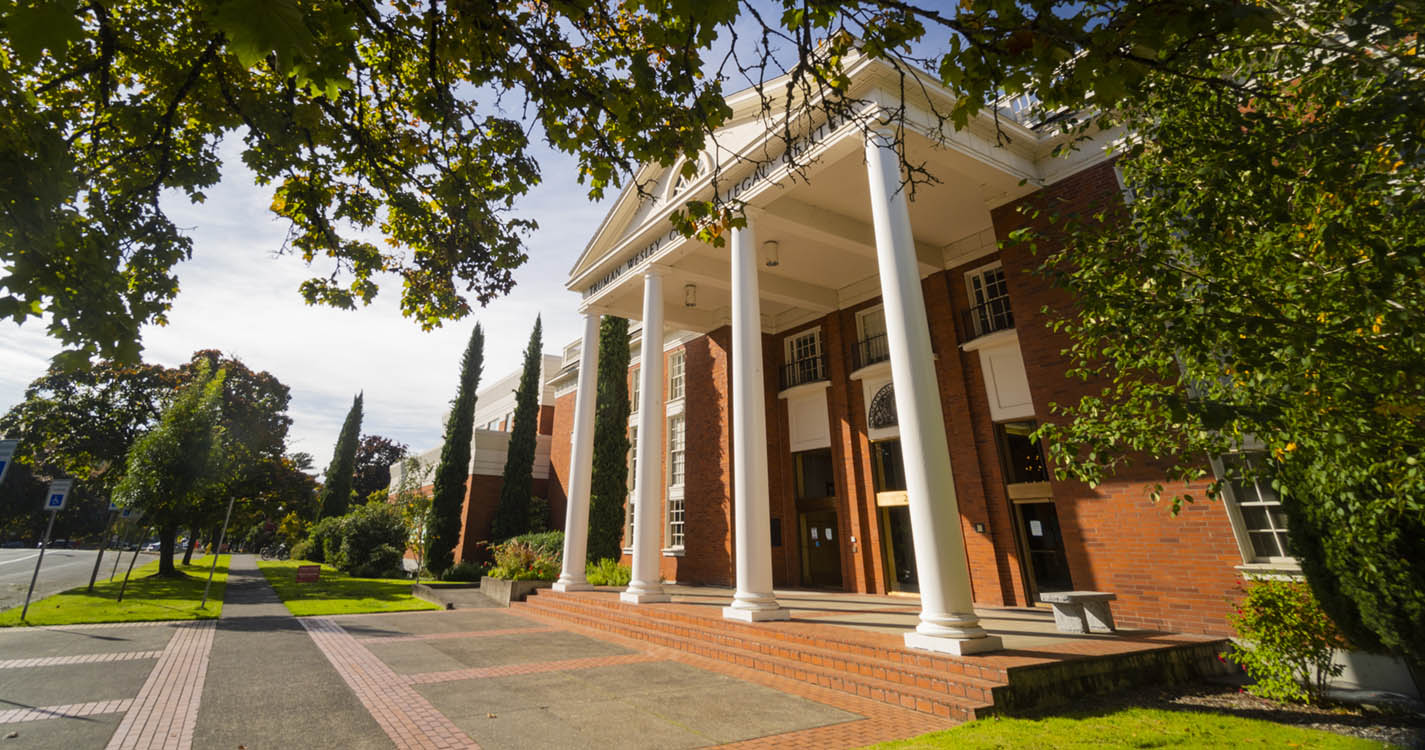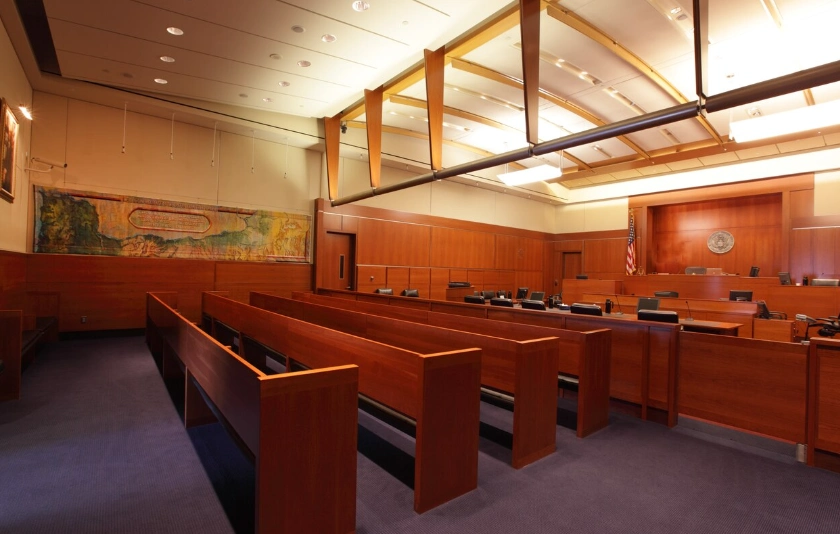Throughout 2022, the College of Law has worked diligently to position itself as a leader in experiential education, particularly in national conversations around attorney licensure reform. Over the past year, the College of Law has also continued to advance its visibility throughout the legal academy and broader legal landscape. As part of doing so, the law school has made great strides in strengthening faculty by hiring professors with strong backgrounds in experiential legal education that inform their research agendas. The internationally recognized faculty continue to publish influential works, including across single-author journal articles, book chapters, and prominent legal filings - among other examples.
The College of Law is, moreover, proud of its efforts to strengthen equity and inclusion throughout all facets of the law school’s operations. To that end, the past year has enabled the law school to partner with new organizations and schools to accomplish shared goals of equity, inclusion, and accessible pathways to a legal education. As the College prepares for the year ahead, it pauses to highlight just a few of the achievements that characterize its efforts in 2022.
The year started off with a bang in January when the Oregon Supreme Court unanimously voted to approve-in-concept two new pathways to attorney licensure–the Oregon Experiential Pathway and the Supervised Practice Pathway. In anticipation of opening these pathways for law students, the College of Law announced that it would hire new faculty to enhance and expand experiential learning in the curriculum. The College of Law remains actively involved in attorney licensure reform and looks forward to finalizing its approach to the Oregon Experiential Pathway in the months ahead.
The year continued with the College’s historic announcement to end conditional scholarships for all future admitted students, effective for the Class of 2025. All awards moving forward, the College announced, would be renewable on the basis of good academic standing. This decision was of particular importance, College of Law Dean Brian Gallini reflected, to “enhancing transparency, access, and equity in legal education.” Then, in its ongoing commitment to increase equity and transparency in law school admissions, the College partnered with AccessLex to join its LexScholars Post-Baccalaureate program. Joining the program enabled the law school to assist with preparing aspiring law students from underrepresented backgrounds for the rigors of law school.
As the year progressed, the Law School Bound program continued to grow as it entered its second year with 14 students currently enrolled from the Willamette University College of Arts & Sciences. The College also expanded its direct admission pathway offerings by announcing a new partnership with the University of Alaska Fairbanks. The agreement is the third of its kind between the law school and public universities in Alaska and allows undergraduate students and alumni to be admitted to the law school based on transparent academic credentials. In total, the law school has partnered with six undergraduate universities as part of its Direct Admissions Program.
As warmer weather arrived, so too did the law school’s announcement that it had partnered with the John Paul Stevens Foundation Fellowship Network to expand access for College of Law students to new public interest law fellowships. The partnership, which aligns with the law school’s Signature Strength in Public Service, has increased opportunities and access for students who want to become more involved in public service. Brooke Trujillo (JD ‘23), Emma Gill (JD ‘24), Faith O’Malley (JD ‘24), and Robin Hopkins (JD ‘24) were announced as the law school’s first Stevens Fellows.
As the fall semester approached, the College welcomed new faculty members Stephanie Davidson, Robin Maril, and Beth Zilberman. Professor Davidson joined the faculty as the Law Library Director and Associate Professor of Law. Her scholarship focuses on user needs in the hybrid print/electronic environment, research paths to interdisciplinary scholarship in law and library support for faculty scholarship. In her time at Willamette Law, she has already made significant advancements to reimagining the law library all while serving as a great resource for students. Professor Maril’s dynamic scholarship has already been accepted for publication in the UC Irvine Law Review and the San Diego Law Review, and she has published a number of influential op-eds. Finally, Professor Zilberman has spent her first year on the full-time faculty launching a new Immigration Clinic–the only of its kind in Oregon. She is an expert on asylum and child immigration and is developing a comprehensive set of immigration law curricular offerings.
Throughout the fall term, faculty, staff, and students collectively engaged in critical conversations around equity and inclusion. Those conversations began when Nyree Grey, Vice President for Human Relations and Chief Diversity Officer at Claremont McKenna College, visited the faculty retreat to facilitate a conversation about creating an inclusive classroom.
At the semester’s midpoint, Dr. Mandy Davis visited campus to lead a workshop on trauma informed teaching. Dr. Davis is the Director of Trauma Informed Oregon, a program designed to advance trauma informed care throughout organizations and systems through training, consultation, and implementation resources. Her workshop guided faculty on how best to apply a trauma-informed care lens to the law school classroom. Most recently, the College’s Institutional Equity Committee (IEC) launched “First Tuesdays,” a community-wide conversation that takes place the first Tuesday of every month designed to feature the equity and inclusion work taking place around the law school and the value of creating an inclusive and justice-oriented community.
“No one does significant things alone and the College of Law owes an extraordinary debt of gratitude to its faculty, staff, students, and alumni for helping to build extraordinary momentum that is sure to carry into 2023,” reflected Dean Gallini. “I’m looking forward to a great year ahead collaborating and working together to continue to place justice, fairness, and equality at the heart of everything we do.”
As the College of Law looks forward to 2023, it proudly recognizes and celebrates all of the accomplishments from the last year.




